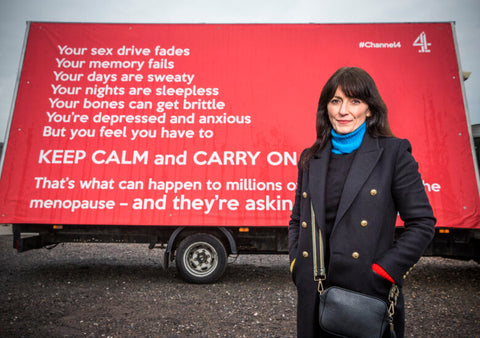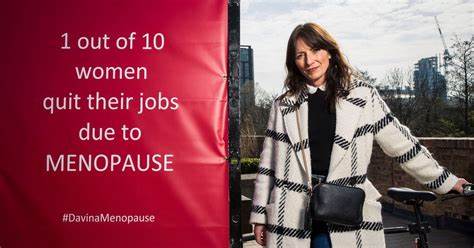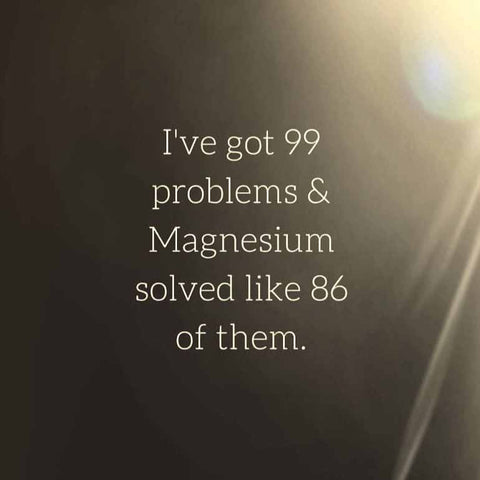Davina Mccall Menopause Documentarys Top Takeaways
We are always interested in new research on the menopause here at The Ives and have been real fans of Davina Mccall's documentary on it, not once but twice!
So, we are going to take a look at both of Davina's documentarys on the menopause and give you her important takeaways.
Davina is 55 years old and wants to share her experience as well as providing support to those others that might be starting on their own "Second Spring" (the Chinese name for peri-menopause)
Davina had produced 2 documentaries on Menopause - the 1st in 2021 called Sex, Myths and the menopause, and the second in 2022 - Sex, mind and the menopause. There may perhaps be a third documentary but this is yet to be confirmed!

Davina was in a dark place in her early to mid-forties when her menopause symptoms began.
‘I lost myself,’ she says. ‘Broken sleep and brain fog, emotional, a bit all over the place, and I was frightened.’
‘Sometimes, you come to feel like you’ve misplaced your marbles so terribly that you are unable to go on [doing your job],’ she states.
The landmark 2nd documentary comes after news private menopause clinics are seeing ten times as many patients as they were 18 months ago as women desperately try to access HRT medication.
Viewers were astonished by the findings of the documentary, hailing it a must-watch for both men and women and praising the host for her 'amazing informative programme'.
The Davina McCall menopause documentary featured shocking statistics from a Channel 4 survey revealing that of the 4,000 45-55-year-olds asked, seventy per cent reported suffering from brain fog.
Almost half said menopause symptoms affected their ability to do their job while nearly 85 per cent said there was nobody in the workplace to turn to about their problems. One in 10 had quit their job as a result.
"People are crying out for guidance on how to cope with this stage of their lives," says Davina, who in 2021, joined women outside the Houses of Parliament to celebrate the reduction of HRT prescription charges and the creation of a dedicated menopause task force.
"Women in their mid-40s are reaching their prime," Davina adds. "Many of us, just as we find our stride, are struck down with a hormone deficiency that can lead some women to suicide. Think about the drain on the economy when all these women with 30 years of experience in the workplace have to leave because they can’t cope due to a lack of hormones. Think of the drain on the NHS paying for hip replacements, treating osteoporosis and heart disease when HRT could lower the risk of these issues, save money, and help society. It’s literally a super-smart business move.

After watching both documentaries our top takeaways for you are:
The presenter then chatted with Paula Fry, a high-flying City executive who feared she was developing dementia when she began going through perimenopause in her early 40s.
'My symptoms I can pin back to when I was about 43,' she said. 'I went to a big tech firm had a lot to learn, a great job and I couldn't remember what I was doing. I thought I had early onset dementia.
Davina also spoke with neuroscientists Dr Lisa Mosconi and Dr Roberta Brinton who say women should begin taking HRT at the age hormone levels decrease, because their brains will eventually become more unreceptive to therapy.
Experts said many women feel dismissed by NHS GPs who tell them they are ‘too young’ to be going through the menopause or wrongly diagnose them with depression.
Davina was also interviewed for the Balance menopause podcast by Dr Louise Newson which discuss' a broad range of topics such as the role of estrogen in our bodies, types of HRT, the huge need for more research, and the gaps in menopause care across the country. If you get a chance to listen it has some useful information and is a good communitee for you to go to and have a listen.
Davina also gave her three reasons for watching the 2 TV documentaries,
- Someone you love, someone you know, or someone you work with will be going through what this programme is about. You may end up with a much greater understanding of that person
- If you’re pro-women, in any way, there are ways you can get out there and make a noise for positive change.
- You will be informed about something that half the nation will go through. Everybody should know about it

While Davina argues the menopause is a time of massive change, she believes it’s one of massive opportunity, too.
‘It’s a time of liberation,’ Davina states, of the menopause. ‘It’s a time of shedding the shackles of inhibition and of giving a damn.’
‘You can make whatever you want of your life. If you want to get somewhere, you can get there. Just visualise that, manifest it, write it down and make it happen.’
Want more of the best Davina menopause thoughts and reflections? Watch both her documentarys or read the book out now in most book shops. There are also a few youtub videos that
WIth our Menopause support Spray helping more and more women, we want as much education about the menopause out in the world as we can get. Its time to learn and move forward as a society. Do you agree?

The Ives 🧡

